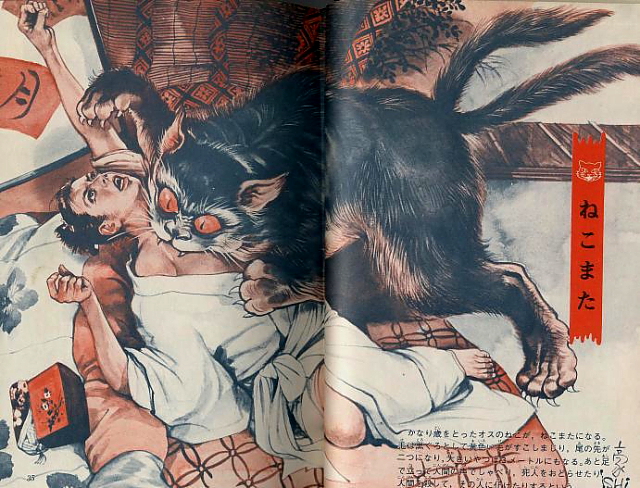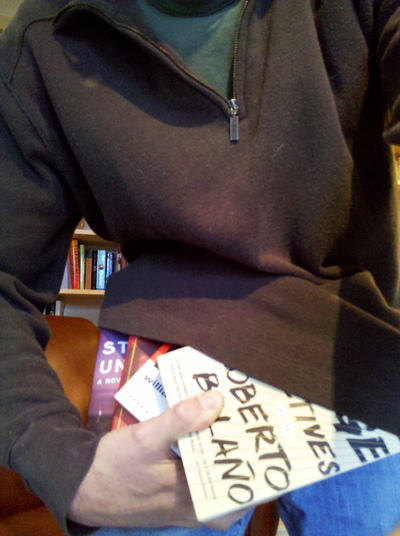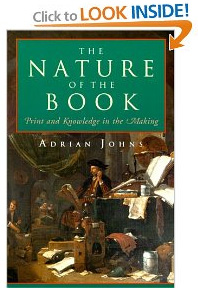Here’s a music video made entirely out of illustrations, photos, and text from second-hand books! I never watch music videos all the way through. But I watched this one and admired its clever associations of images to lyrics. It’s all spelled out for you in the most charming and humorous way. Good song too! Ben Reed made this for a band called The Wave Pictures.
Tag Archives: Books
Gojin Ishihara’s Freak Art for Kids
 Pink Tentacle has an amazing collection of freakishly bizarre Japanese children’s book illustrations by Gojin Ishihara from the 1970s. His marvelously comforting work features various humans being eaten, strangled, decapitated, tortured and generally threatened by every sort of demonic beast possible to imagine.
Pink Tentacle has an amazing collection of freakishly bizarre Japanese children’s book illustrations by Gojin Ishihara from the 1970s. His marvelously comforting work features various humans being eaten, strangled, decapitated, tortured and generally threatened by every sort of demonic beast possible to imagine.
Well worth your time.
Do Books Work as Memory Theater?
 Open Letters Monthly has an article called In Defense of the Memory Theater, by Nathan Schneider in which he argues that books on shelves perform the function of reflecting memories back at us. They are a constant reminder of the various events, stages, and emotional states of our lives. We look at our shelves and can instantly catapult ourselves back in time to events surrounding our reading of various volumes.
Open Letters Monthly has an article called In Defense of the Memory Theater, by Nathan Schneider in which he argues that books on shelves perform the function of reflecting memories back at us. They are a constant reminder of the various events, stages, and emotional states of our lives. We look at our shelves and can instantly catapult ourselves back in time to events surrounding our reading of various volumes.
Schneider mentions a 16th-century memory theater that used images and symbols of the cosmos to inspire observers and enhance their intellectual powers. Books, for Schneider, do something similar when they are visible on our shelves. I agree up to a point. I am often taken back in time by my own books upon their shelves. But so am I transported by nearly every object in my home. Objects all have this power. Books are not exceptional in this regard.
Newsreel Film From 1947: Making Books
“This man is an author. He writes stories. He has just finished writing a story. He thinks many people will like to read it.” So begins this 1947 Encyclopedia Britannica film about how books are printed and bound. Almost none of what you see in the film, with the possible exception of the book trimming blade, exists anymore. It’s fascinating and horrifying at the same time. Fascinating because we get to see the mysterious process of making a book. Horrifying because we see how machines dictate the movements of human beings in an assembly line environment. It’s so dreadful that I may never want to read an old book again. Perhaps e-books are some kind of salvation after all.
Is Stealing eBooks Ethical?
 Is it ethical to steal an eBook if you’ve purchased the hardback version? Sure. Stealing the hardbacks themselves is much more fun though. Is it ethical for a publisher to charge what they charge for hardbacks? No way at all. Sorry publishers, your pricing sucks and you know it. So, certainly it’s ethical to steal an eBook if I’ve been robbed by the hardback price already.
Is it ethical to steal an eBook if you’ve purchased the hardback version? Sure. Stealing the hardbacks themselves is much more fun though. Is it ethical for a publisher to charge what they charge for hardbacks? No way at all. Sorry publishers, your pricing sucks and you know it. So, certainly it’s ethical to steal an eBook if I’ve been robbed by the hardback price already.
Now of course all the minimum wage proof readers in New York City will pounce on me and call me terrible names because they dread being turned into temp workers.
But stealing books is a real talent. You need a big army jacket that has lots of giant pockets inside and out. It’s best to steal them from large grocery and discount stores. eBooks are too easy to steal and you never really know what’s waiting for you on the other end of a download link anyway. The photo is of me demonstrating my own book-stealing technique. I have amassed quite the respectable library this way. But I never lend books out because they seldom make their way back home.
Here is an effort by a New York Times writer to answer the question of whether stealing ebooks is ethical or not if you’ve already bought the hardback.
But here’s a better piece at The Millions about an eBook pirate who’s pretty clear about what he likes.
Also, if you want to see how stealing books actually improves the world and culture, read The Savage Detectives by Roberto Bolaño.
The Nature of the Book
 I sat down with my Kindle e-reader on Saturday morning to read the Los Angeles Times. There was an article about an L.A. used bookstore called Iliad Books. Sounded nice. So I went. What should I find but a section of books about books and publishing. There was a copy of The Nature of the Book: Print and Knowledge in the Making by Adrian Johns. The author’s main thrust is to examine how books in early modern England influenced and largely caused the development of the modern scientific method and the general acquisition and spread of knowledge. He wonders why readers assume that books are accurate and fixed. This is an interesting inquiry in light of the recent changes in publishing which involve ever-changeable electronic publishing and web postings. The history of the effort to make books fixed and true representations of their authors’ intentions and ideas is a fascinating one. It includes an analysis of widespread piracy that dogged publishers of books from the very beginnings of printed material.
I sat down with my Kindle e-reader on Saturday morning to read the Los Angeles Times. There was an article about an L.A. used bookstore called Iliad Books. Sounded nice. So I went. What should I find but a section of books about books and publishing. There was a copy of The Nature of the Book: Print and Knowledge in the Making by Adrian Johns. The author’s main thrust is to examine how books in early modern England influenced and largely caused the development of the modern scientific method and the general acquisition and spread of knowledge. He wonders why readers assume that books are accurate and fixed. This is an interesting inquiry in light of the recent changes in publishing which involve ever-changeable electronic publishing and web postings. The history of the effort to make books fixed and true representations of their authors’ intentions and ideas is a fascinating one. It includes an analysis of widespread piracy that dogged publishers of books from the very beginnings of printed material.
Thinking about the nature of books and their history, along with the underworld of book manipulation, piracy, copyright, and the conveying of knowledge is essential as publishing undergoes its greatest changes since the beginnings of the printed page.